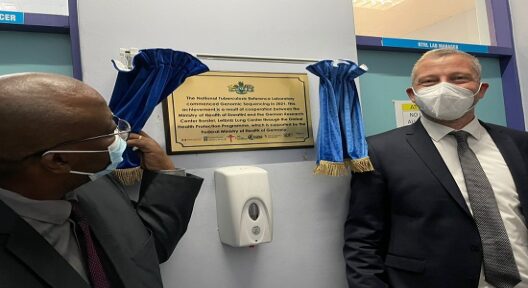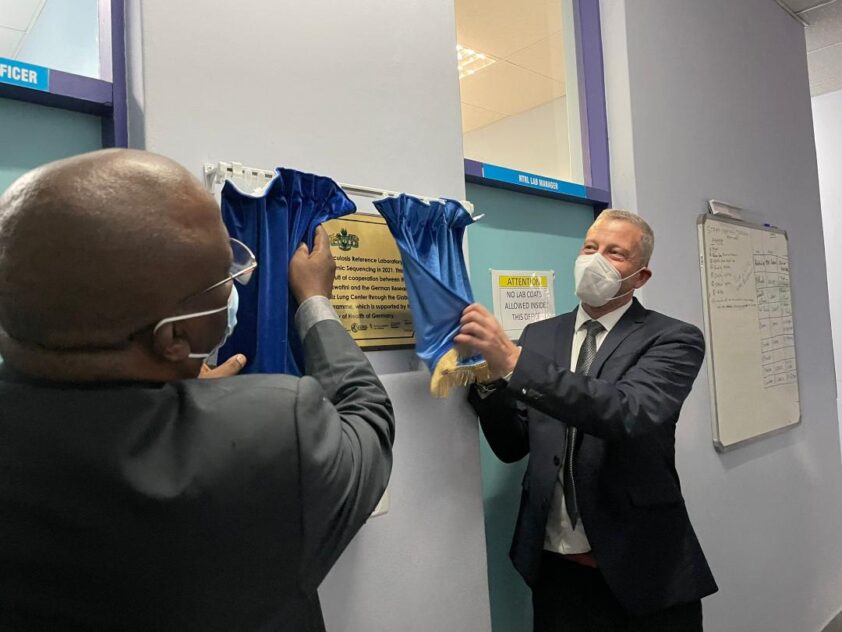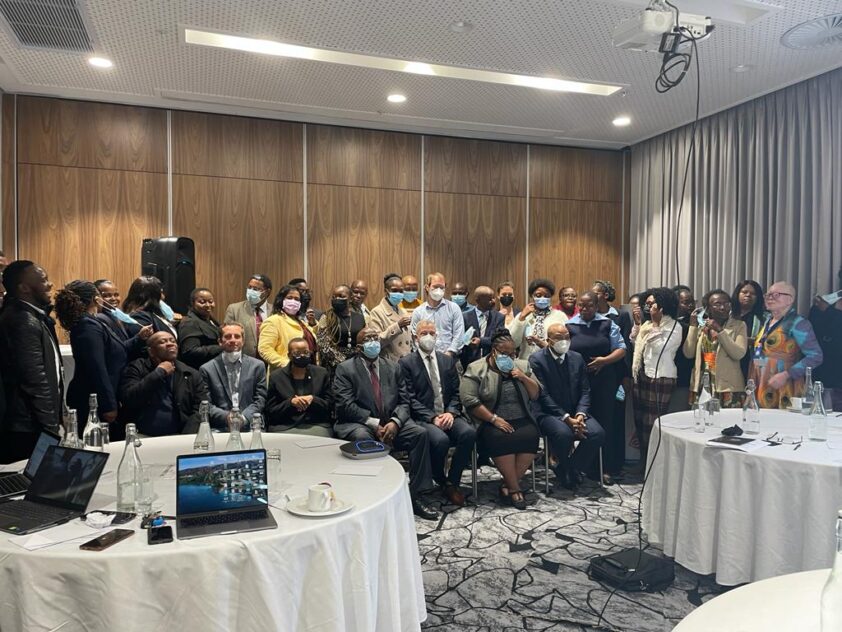Ceremony of the Official Launch of the TB Sequencing Project and Commissioning of the Clinical Advisory Committee
The World Health Organization (WHO) ranks Eswatini among the 30 countries with the highest HIV-associated tuberculosis (TB) burden in the world. Even worse, the country is affected by multi-drug resistant (MDR) TB, which cannot be detected with classical diagnostics. Following genome sequencing introduction in Mbabane, the molecular diagnostic/surveillance of pathogens can now be done locally.

Eswatini will now be able to detect drug resistant TB and COVID-19 variants after the National Referral Laboratory (NRL) introduced genomic sequencing technology. The Director of Health Services, Dr Vusi Magagula, commissioned the launch of the TB sequencing laboratory in the presence of the German partner Prof Dr Stefan Niemann during an event at the Hilton Garden Inn on 15 March 2022 in Mbabane/Eswatini. Dr. Magagula reported that the country has been provided with two iSeq 100 sequencing platforms with funds of the Global Health Protection Program (GHPP) of the German Ministry of Health, that will be used to conduct genomic sequencing of pathogens. These platforms can support the rapid detection of drug resistance-mediating mutation in the Genome of the TB pathogen Mycobacterium tuberculosis (Mtb) or the molecular characterisation of SARS-CoV-2 variant. It also has the potential to be used for the modernisation of the diagnostic and surveillance of other infectious diseases, such as HIV.

The implementation of this technology came after Stefan Niemann’s research group discovered that Eswatini was affected by prevalence of multi-drug resistant TB strains with a particular rifampicin resistant mutation called I491F mutation, which is not detected by classical genotypic and phenotypic drug susceptible methods recommended by the WHO. GeneXpert MTB/RIF, the routine diagnostic method for MDR-TB at the NRL in Eswatini, misses an estimated 58% of rifampicin-resistant or multidrug-resistant TB cases in Eswatini because GeneXpert does not detect the I491F mutation in the genome of the TB pathogen. As part of the international commitments of the Global Health Protection Program of the German Federal Ministry of Health the following institutions are collaboratively conducting the so called SeqMDRTB_NET Project. These are:
- The Research Center Borstel – Leibniz Lung Center (RCB) in Germany
- Ospedale San Raffaele WHO Supranational TB Reference Laboratory (OSR) in Italy
- Baylor College of Medicine Children’s Foundation in Eswatini and USA
- Ministry of Health: Eswatini Health Laboratory Service and National Tuberculosis Control Program in Eswatini
SeqMDRTB_NET stands for Sequencing multidrug resistant Tuberculosis Network and describes an initiative of Prof. Stefan Niemann from the Research Center Borstel to build a network of experts, who can apply sequencing technology where conservative methods require too much time or effort to answer urgent questions in the fight against infectious diseases. Originally established to detect emerging resistant Mtb strains in countries such as Mozambique, Namibia and Eswatini, the network’s technology expertise has also been extended to characterise variants of SARS-Cov 2 circulating in the African partner countries. The implementation of the new sequencing technology is crucial for optimal TB diagnosis and surveillance in Eswatini.

SeqMDRTB_NET is designated to support Eswatini in establishing next generation sequencing technologies as diagnostic tools for rapid prediction of drug resistance from primary specimens and close the existing gaps that undermine the fight against TB. The core goal of this project are next generation sequencing technology transfer, developing guidelines and diagnostic workflow, capacity building and training of experts in bioinformatics analysis.
“Through this technology we can improve diagnosis of MDR-TB, including the rpoB I491F mutation, tracing of MDR-TB patient contacts, and careful epidemiological monitoring of the spread of the MDR outbreak clones on a regional scale and beyond,” the Director of Health Services in Eswatini Dr. Magagula said.
Date: April 2022


